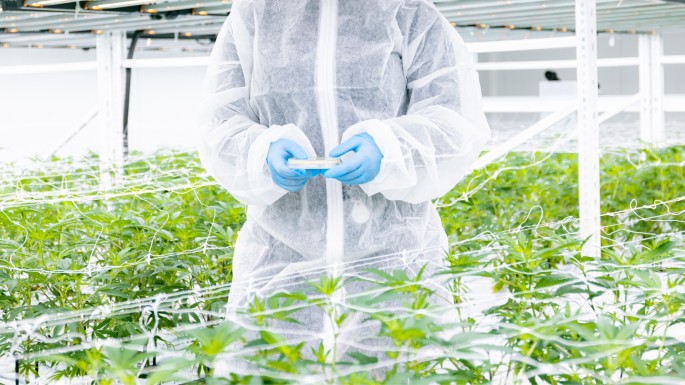GMP paves the way for the future of cannabis manufacturing facilities, where it's all about quality, compliance and innovation
26.09.2023
In the ever-evolving landscape of the cannabis industry, one term that's gaining significant traction is "GMP cannabis production facility". GMP, or Good Manufacturing Practices, represents a standard of quality, compliance and precision that's essential to ensuring safe and consistent cannabis products. Let's take a deep dive into the world of GMP cannabis production facilities, exploring their importance, key features and role in shaping the future of the industry.
Laying the foundations: What is GMP?
Good Manufacturing Practices, or GMP, is a globally recognized set of guidelines designed to ensure the quality, safety and consistency of products in various industries, including pharmaceuticals, food and now cannabis. GMP principles cover every aspect of production, from facility design and equipment maintenance to employee training and record keeping. By adhering to GMP, companies demonstrate their commitment to producing products that meet high quality standards.
The cannabis industry's shift towards GMP
As the cannabis industry matures and gains mainstream acceptance, the demand for reliable, standardized products has never been greater. GMP cannabis production facilities represent a paradigm shift from the industry's earlier days, when inconsistent product quality and lack of regulation were common concerns. GMP provides a framework to address these concerns, ensuring that consumers can be confident in the safety and efficacy of the products they choose.
An overview of the key features of a GMP cannabis production facility
Facility design and maintenance: GMP facilities are carefully designed to prevent cross-contamination and ensure optimal production conditions. Air filtration, sanitation protocols and controlled access areas contribute to a controlled environment. Quality control and testing: Rigorous quality control measures are an integral part of GMP facilities. Regular testing for potency, contaminants and other factors ensures that each batch of product meets pre-determined specifications. Documentation and record keeping: Detailed documentation is a cornerstone of GMP compliance. From Standard Operating Procedures (SOPs) to batch records, every step of production is meticulously documented to ensure traceability and accountability. Staff training and hygiene: Proper training is essential to maintaining GMP standards. Employees are trained in GMP principles, hygiene practices and safety protocols to minimize the risk of error or contamination. Supplier qualification: GMP facilities ensure that their raw materials and inputs come from trusted suppliers. Supplier qualification processes verify the quality and consistency of incoming materials.
The future of the cannabis industry: GMP's Role
As the cannabis industry continues to grow and adapt, GMP cannabis production facilities will play a crucial role. Not only do they set a high bar for product quality, but they also contribute to the legitimacy and acceptance of the industry. GMP practices pave the way for standardization, enabling the development of evidence-based cannabis therapies and medicines.
Challenges and considerations
Transitioning to a GMP cannabis production facility presents challenges, including significant initial investment, extensive training programs, and the intricacies of navigating regulatory frameworks. However, these challenges are outweighed by the long-term benefits of building a reputation for quality, compliance and innovation.
The rise of GMP cannabis production facilities signifies the industry's commitment to growth and maturity. By adhering to these stringent standards, we can provide consumers with safe, consistent and effective cannabis products. For us, it's clear that a new era of quality-driven cannabis production is on the horizon, shaping the future of cannabis as a legitimate and influential sector in the global marketplace.



